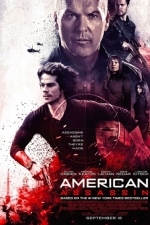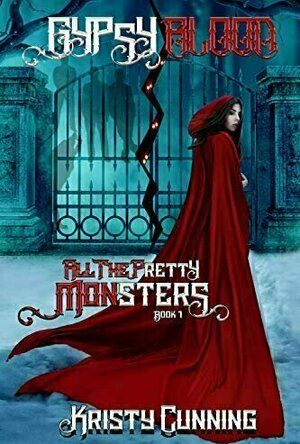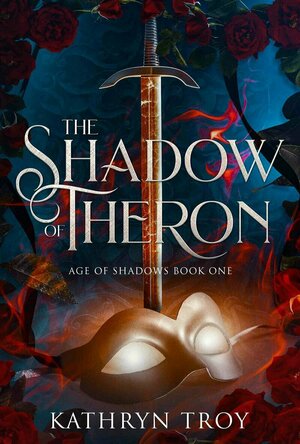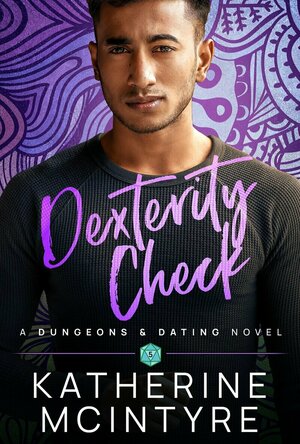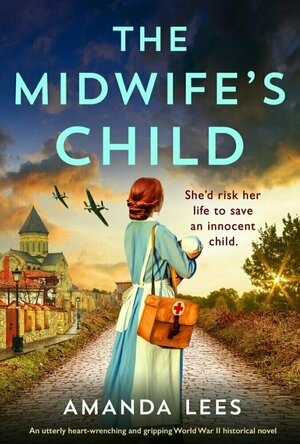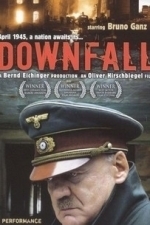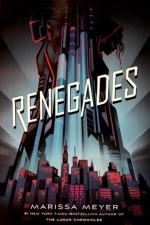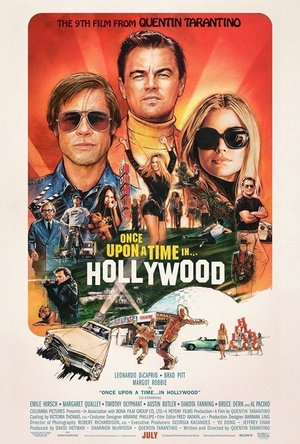Search
Search results
Gareth von Kallenbach (980 KP) rated American Assassin (2017) in Movies
Jul 11, 2019
Traumatic events affect people differently. Some avoid anything that resembles that moment or triggers memories of it. Others are impacted so deeply that they must take action. American Assassin, based on the Vince Flynn books, features Dylan O’Brien (Maze Runner) as Mitch Rapp who wants to avenge the killing of his girlfriend in a terrorist attack. Upon his attempt to track down the men responsible, he is recruited by the CIA to help them track down the perpetrator of several attacks on civilian and military targets.
The film is ambitious in its approach to entering the realm of spy thrillers. There is no real depth to the film or moments that make the audience truly invested in the characters onscreen. At times, the story feels rushed, repetitive, and confusing. The actions scenes, however, are engrossing and give the audience the sense of chaos that would be felt if they were a part of it. The most interesting aspect of the film is not the story, but Michael Keaton’s portrayal of Stan Hurley, who leads Rapp on their international quest to find a rogue agent and prevent a nuclear detonation. Keaton’s character seems to be a combination of some of his more iconic roles allowing for much more depth, connection to be made between him and the other characters, despite the lack of chemistry between them collectively.
American Assassin is a good action film for those looking for an escape in the theaters, but for those looking for something that will rival any of the Bourne films, or the James Bond series, they are going to be sorely disappointed.
The film is ambitious in its approach to entering the realm of spy thrillers. There is no real depth to the film or moments that make the audience truly invested in the characters onscreen. At times, the story feels rushed, repetitive, and confusing. The actions scenes, however, are engrossing and give the audience the sense of chaos that would be felt if they were a part of it. The most interesting aspect of the film is not the story, but Michael Keaton’s portrayal of Stan Hurley, who leads Rapp on their international quest to find a rogue agent and prevent a nuclear detonation. Keaton’s character seems to be a combination of some of his more iconic roles allowing for much more depth, connection to be made between him and the other characters, despite the lack of chemistry between them collectively.
American Assassin is a good action film for those looking for an escape in the theaters, but for those looking for something that will rival any of the Bourne films, or the James Bond series, they are going to be sorely disappointed.

The Red Lotus
Book
From the #1 New York Times bestselling author of Midwives and The Flight Attendant comes a twisting...
Lyndsey Gollogly (2893 KP) rated Gypsy Origins ( All the Pretty Monsters book3) in Books
Sep 24, 2022
172 of 230
Kindle
Gypsy Origins ( All The Pretty Monsters book 3)
By Kristy cunning
⭐️⭐️⭐️
I'm like a snowball rolling downhill.
That's the first thing that pops into my mind when I try to explain my life. I don't know exactly "what'"I am, but I do know who I am. At least...I did.
Sometimes life sends things your way that upend everything you thought you knew, and then slings you in another direction without any sort of harness or warning.
Sometimes it drops someone like me off in the path of four wildly different monsters, who all used to be best friends, but now sort of hate each other and compete over absolutely everything, including...me.
Life would be easier if I wasn't already attached to those four monsters, but they occasionally let their guard down around me, and I get a glimpse of what has to stay hidden under all those snowball layers, since they already rolled downhill a long time ago.
I'm tired of losing people I care about. I'm tired of searching aimlessly for answers. I'm tired of not having the right questions to ask.
I do like this series. I really like the characters and storyline. The only one thing with this one was there was so much more information thrown at you and sometimes didn’t come across so clear so you had backtrack and reread a few bits. Saying that I do like the new developments and she finally tells them to man up and do what they should be doing. Looking forward to what comes next! Warning though this ends on a cliffhanger!
Kindle
Gypsy Origins ( All The Pretty Monsters book 3)
By Kristy cunning
⭐️⭐️⭐️
I'm like a snowball rolling downhill.
That's the first thing that pops into my mind when I try to explain my life. I don't know exactly "what'"I am, but I do know who I am. At least...I did.
Sometimes life sends things your way that upend everything you thought you knew, and then slings you in another direction without any sort of harness or warning.
Sometimes it drops someone like me off in the path of four wildly different monsters, who all used to be best friends, but now sort of hate each other and compete over absolutely everything, including...me.
Life would be easier if I wasn't already attached to those four monsters, but they occasionally let their guard down around me, and I get a glimpse of what has to stay hidden under all those snowball layers, since they already rolled downhill a long time ago.
I'm tired of losing people I care about. I'm tired of searching aimlessly for answers. I'm tired of not having the right questions to ask.
I do like this series. I really like the characters and storyline. The only one thing with this one was there was so much more information thrown at you and sometimes didn’t come across so clear so you had backtrack and reread a few bits. Saying that I do like the new developments and she finally tells them to man up and do what they should be doing. Looking forward to what comes next! Warning though this ends on a cliffhanger!
Merissa (13749 KP) rated The Shadow of Theron (Age of Shadows #1) in Books
Mar 7, 2023
THE SHADOW OF THERON is the first book in the Age of Shadows series and is set in a fantasy world where those in the nobility are called Don's and Dona's, inevitably drawing Zorro comparisons. They have three main factions of worship, each one a different face of the Goddess. And then they have the bad guys. I won't say too much as it will take away from the story.
Lysandro is a great character - well liked by those he watches over, and loved by the same people when he is his alter-ego, the Shadow of Theron. Sera is a strong character, having been through her own trials, and fully capable of standing on her own feet. They are supported by a large and varied cast, each playing their own role in moving the story forwards.
You also get an inside peek at Lothan Marek - the main form of the big bad in this book. Trust me, there are no redeeming features for this one.
If you are looking for a fantasy novel with plenty of action, drama, and angst, then I think this one will be right up your alley. It is a long book, with plenty to get your teeth into. Personally, I felt as though it could have been significantly shortened, with the story tightened, with no loss of action or drama.
** same worded review will appear elsewhere **
* A copy of this book was provided to me with no requirements for a review. I voluntarily read this book, and the comments here are my honest opinion. *
Merissa
Archaeolibrarian - I Dig Good Books!
Lysandro is a great character - well liked by those he watches over, and loved by the same people when he is his alter-ego, the Shadow of Theron. Sera is a strong character, having been through her own trials, and fully capable of standing on her own feet. They are supported by a large and varied cast, each playing their own role in moving the story forwards.
You also get an inside peek at Lothan Marek - the main form of the big bad in this book. Trust me, there are no redeeming features for this one.
If you are looking for a fantasy novel with plenty of action, drama, and angst, then I think this one will be right up your alley. It is a long book, with plenty to get your teeth into. Personally, I felt as though it could have been significantly shortened, with the story tightened, with no loss of action or drama.
** same worded review will appear elsewhere **
* A copy of this book was provided to me with no requirements for a review. I voluntarily read this book, and the comments here are my honest opinion. *
Merissa
Archaeolibrarian - I Dig Good Books!
Debbiereadsbook (1650 KP) rated Dexterity Check (Dungeons and Dating #5) in Books
Feb 23, 2023
I wanted to punch Eli a time or two!
Independent reviewer for Archaeolibrarian, I was gifted my copy of this book.
This is book 5 in the Dungeons and Dating series. While not strictly necessary to have read books one to 4 before this, I strongly recommend that you do. It will give you a better feel of this group of people and their ever expanding found family. I loved all four of the previous books.
And while I liked this one well enough, there was something different about it and I can't put my finger on it and it pains me so that I can't!
I liked Arjun, and I liked Eli, both together and separately. I liked their interactions with the rest of the group. The progression of their relationship went as I expected it to. I loved Arjun's grandmother and how much love there is between those two! I loved how easy Eli fit into to that.
I did not like how Eli kinda strung Arjun along, when he was making a decision about moving, though! I wanted to punch him a time or two.
BUT! I do understand WHY Eli is the way he is. He has been hurt before, and they both went into this clear and up front as to what it was. It's just those pesky feelings doing their thing that throws a spanner in the works!
I enjoyed this; I really did. It's a welcome addition to the series. I just didn't love it as much as the other 4 books.
4 stars
*same worded review will appear elsewhere
This is book 5 in the Dungeons and Dating series. While not strictly necessary to have read books one to 4 before this, I strongly recommend that you do. It will give you a better feel of this group of people and their ever expanding found family. I loved all four of the previous books.
And while I liked this one well enough, there was something different about it and I can't put my finger on it and it pains me so that I can't!
I liked Arjun, and I liked Eli, both together and separately. I liked their interactions with the rest of the group. The progression of their relationship went as I expected it to. I loved Arjun's grandmother and how much love there is between those two! I loved how easy Eli fit into to that.
I did not like how Eli kinda strung Arjun along, when he was making a decision about moving, though! I wanted to punch him a time or two.
BUT! I do understand WHY Eli is the way he is. He has been hurt before, and they both went into this clear and up front as to what it was. It's just those pesky feelings doing their thing that throws a spanner in the works!
I enjoyed this; I really did. It's a welcome addition to the series. I just didn't love it as much as the other 4 books.
4 stars
*same worded review will appear elsewhere
Hazel (2934 KP) rated The Midwife's Child (WW2 Resistance Series #3) in Books
May 21, 2023
The Midwife's Child is an emotional rollercoaster that although is work of fiction, it's based on things that actually happened and real people with the love story element between Maggie and Jamie being based on the true story of a Scottish Commando who met a young woman in a displaced persons camp who had survived the death march.
This is the third in this series but I think it works successfully as a standalone because whilst there are recurring characters, each book is a separate story which focusses on one of those recurring characters.
The Midwife's Child centres around Maggie, a former SOE Special Operations Executive) but now incarcerated in Auschwitz following her capture. There she finds herself working in the camp hospital where the devil incarnate, Joseph Mengele, practised his infamous experiments and where Maggie is determined to save the life of her friend Eva and new born, Leah. The end of the war is fast approaching and the Russians are getting close, Eva is too unwell to go on the forced march so she begs Maggie to save her child and reunite her with her father. A seemingly impossible task but one which Maggie vows to complete.
Told from two timelines, from her time as a doctor working in the 'hospital' at Auschwitz towards the end of the war and the period afterwards, The Midwife's Child is a story of exceptional courage, duty, love, friendship and hope and a story that I highly recommended to those of you who enjoy this genre and I have to thank Bookouture and NetGalley for enabling me to read and share my thoughts of The Midwife's Child.
This is the third in this series but I think it works successfully as a standalone because whilst there are recurring characters, each book is a separate story which focusses on one of those recurring characters.
The Midwife's Child centres around Maggie, a former SOE Special Operations Executive) but now incarcerated in Auschwitz following her capture. There she finds herself working in the camp hospital where the devil incarnate, Joseph Mengele, practised his infamous experiments and where Maggie is determined to save the life of her friend Eva and new born, Leah. The end of the war is fast approaching and the Russians are getting close, Eva is too unwell to go on the forced march so she begs Maggie to save her child and reunite her with her father. A seemingly impossible task but one which Maggie vows to complete.
Told from two timelines, from her time as a doctor working in the 'hospital' at Auschwitz towards the end of the war and the period afterwards, The Midwife's Child is a story of exceptional courage, duty, love, friendship and hope and a story that I highly recommended to those of you who enjoy this genre and I have to thank Bookouture and NetGalley for enabling me to read and share my thoughts of The Midwife's Child.
RəX Regent (349 KP) rated Downfall (Der Untergang) (2004) in Movies
Feb 19, 2019
The true story of the last days of NAZI Germany, focusing on Hitler and his cohorts as they sought refuge on his Berlin Bunker and is chronicled here with such honesty.
Told in a straight forward manner, we are given a portrait of not only Adolf Hitler himself, played perfectly by Bruno Ganz, who manages to humanize him without ever apologising for his heinous acts, but also those close to him. Shown through the young eyes of his final secretary, Traudl Junge (Alexandra Maria Lara), we are given a picture of what The Third Reich was to those who believed in it as well as what it had become for those who would suffer at it bloody hands.
Directed by Hirschbiegel to put us, the audience in the anterooms with these monsters, we are placed into a complex environment, edgy, atmospheric and most of all, real, as we witness noble acts of patriotism, conscience and pure, despicable horror, none less so that Magda Geobells, with the full consent of her husband, Joseph, first drugging, then murdering their six children as they slept, rather than “let them live in a world without national socialism.”
The only redeeming factors were their eventual suicides and in terms of the film, their first rate performances throughout this harrowing scene. Corinna Harfouch, who portrays Magda manages to portray this evil woman yet convey the emotion which was subdued deep beneath the surface. No small feat to allow such a fleeting glimpse of humanity during such and inhuman act.
But the same must be said Bruno Ganz, who manages to portray Hitler with such humanity; whilst showing us the true nature of his monstrosities, highlighting that the REAL monsters live among us and can seduce us at any time, any where, especially when we are vulnerable.
During one of the film’s early scenes, Hitler and Albert Speer (Heino Ferch), his Armaments Minister, discussing his vision for The Third Reich as he looks over a model of the new Germany which would be built after he won the war, a Germany without department stores, instead focusing on art, literature and culture.
Surely a noble goal, but as we all know, this cultural hub would have been built at an unacceptable cost, mainly with the blood of those who Hitler and his cohorts deemed to be inferior.
This is one of many clever methods used to convey a fair portrait of Hitler and The Third Reich. To demonstrate how bad they were, you first have to show impartiality, pointing out the good in what they do, play devil’s advocate as it were. Because whether we like it or not, evil motives are often built upon decent goals.
But as this film demonstrates, as Hitler shows his destine for anyone, even his own people, who will not give their lives for HIS vision of Germany, his Third Reich was being eaten away by a cancer of his own making, a Germany rotting from the very top.
Downfall is without a doubt one of the best World War 2 films which I have ever seen, delivering a compelling and immersive look behind the scenes of one of the most important defeats in modern history.
But being British and having to follow this with subtitles, which was great as watching this in its native German only adds to the experience, it can be a bit difficult to keep up with every plot machination, as we spend two and half hours reading about troop deployments, tactics and the philosophy of the Third Reich as we are presented with such atmospheric work, but if you can keep up with but the text and visuals, this is one hell of an education for those who do not know and an immersive masterpiece for those who follow WW2 history.
Told in a straight forward manner, we are given a portrait of not only Adolf Hitler himself, played perfectly by Bruno Ganz, who manages to humanize him without ever apologising for his heinous acts, but also those close to him. Shown through the young eyes of his final secretary, Traudl Junge (Alexandra Maria Lara), we are given a picture of what The Third Reich was to those who believed in it as well as what it had become for those who would suffer at it bloody hands.
Directed by Hirschbiegel to put us, the audience in the anterooms with these monsters, we are placed into a complex environment, edgy, atmospheric and most of all, real, as we witness noble acts of patriotism, conscience and pure, despicable horror, none less so that Magda Geobells, with the full consent of her husband, Joseph, first drugging, then murdering their six children as they slept, rather than “let them live in a world without national socialism.”
The only redeeming factors were their eventual suicides and in terms of the film, their first rate performances throughout this harrowing scene. Corinna Harfouch, who portrays Magda manages to portray this evil woman yet convey the emotion which was subdued deep beneath the surface. No small feat to allow such a fleeting glimpse of humanity during such and inhuman act.
But the same must be said Bruno Ganz, who manages to portray Hitler with such humanity; whilst showing us the true nature of his monstrosities, highlighting that the REAL monsters live among us and can seduce us at any time, any where, especially when we are vulnerable.
During one of the film’s early scenes, Hitler and Albert Speer (Heino Ferch), his Armaments Minister, discussing his vision for The Third Reich as he looks over a model of the new Germany which would be built after he won the war, a Germany without department stores, instead focusing on art, literature and culture.
Surely a noble goal, but as we all know, this cultural hub would have been built at an unacceptable cost, mainly with the blood of those who Hitler and his cohorts deemed to be inferior.
This is one of many clever methods used to convey a fair portrait of Hitler and The Third Reich. To demonstrate how bad they were, you first have to show impartiality, pointing out the good in what they do, play devil’s advocate as it were. Because whether we like it or not, evil motives are often built upon decent goals.
But as this film demonstrates, as Hitler shows his destine for anyone, even his own people, who will not give their lives for HIS vision of Germany, his Third Reich was being eaten away by a cancer of his own making, a Germany rotting from the very top.
Downfall is without a doubt one of the best World War 2 films which I have ever seen, delivering a compelling and immersive look behind the scenes of one of the most important defeats in modern history.
But being British and having to follow this with subtitles, which was great as watching this in its native German only adds to the experience, it can be a bit difficult to keep up with every plot machination, as we spend two and half hours reading about troop deployments, tactics and the philosophy of the Third Reich as we are presented with such atmospheric work, but if you can keep up with but the text and visuals, this is one hell of an education for those who do not know and an immersive masterpiece for those who follow WW2 history.
I am absolutely in love with the book and wish that I didn't have to wait another year to find out what happens. Unlike Marissa Meyer's Lunar Chronicles series, I feel that Renegades is not a series that is as universal a read. The Lunar Chronicles effortlessly blends science fiction with a fairytale retelling and I feel can draw people in even if they don't normally read either of those two. Renegades on the other hand is definitely a superhero story, with fantastic characters and an intriguing plot - but, if you're not a fan of superheroes then you're not as likely to fall in love with this book.
I personally love superheroes, I read comics and can completely see the similarities to the X-Men in this novel. The gifted in this novel are called prodigies and have such amazing (and unique) powers. My personal favourite was Adrian, who had the ability to draw and make his art come to life. Even if you're not super familiar with powers in comics, you'll not be surprised by invincibility or flight. That's why Adrian's ability was so fascinating to me. It was wholly different from the powers I've grown to know and infinitely more surprising because of how versatile it is.
I also really enjoyed that the book wasn't black and white, good and evil, right and wrong. Meyer did a brilliant job illustrating the nuances so that as a reader you could see both sides of the coin. Neither was completely the one that you wanted to root for, as they were all real, flawed people. Even Nova, who I didn't completely connect with at the beginning of the book, grew over time and learned to think more openly. I ended up liking her a lot more, and love reading the struggle she went through throughout the entire book as it helped her develop as a character.
The main characters in this story definitely felt more real than the supporting ones, but I still feel that everyone was fleshed out. I never had those moments when I couldn't remember who was who, which can happen with a large cast of characters (especially when they have both real names and aliases). Meyer allowed people to form a connection with almost all of her characters, no matter how many pages she dedicated to them. I think that is definitely where this book shone.
I've always loved Marissa Meyer's ability to build a believable world that populates in your head as you read, and this is no exception. It could see Gatlon City with its heroes and villains, ordinary people, towering base of command, filthy subway tunnels and abandoned theme park buildings. I was so intrigued by the characters and the world that the storyline took more of a backseat for me. It was still fantastic, and even though the pacing of some scenes wasn't perfect, it was a really enjoyable book.
I would highly recommend this book, especially if you like reading about superheroes (or supervillains, I won't judge). I definitely think you'll enjoy the book otherwise, but it might just not end up being your favourite. Who knows? You may discover that you actually love superheroes because of this book. Trust me, it's pretty great.
I personally love superheroes, I read comics and can completely see the similarities to the X-Men in this novel. The gifted in this novel are called prodigies and have such amazing (and unique) powers. My personal favourite was Adrian, who had the ability to draw and make his art come to life. Even if you're not super familiar with powers in comics, you'll not be surprised by invincibility or flight. That's why Adrian's ability was so fascinating to me. It was wholly different from the powers I've grown to know and infinitely more surprising because of how versatile it is.
I also really enjoyed that the book wasn't black and white, good and evil, right and wrong. Meyer did a brilliant job illustrating the nuances so that as a reader you could see both sides of the coin. Neither was completely the one that you wanted to root for, as they were all real, flawed people. Even Nova, who I didn't completely connect with at the beginning of the book, grew over time and learned to think more openly. I ended up liking her a lot more, and love reading the struggle she went through throughout the entire book as it helped her develop as a character.
The main characters in this story definitely felt more real than the supporting ones, but I still feel that everyone was fleshed out. I never had those moments when I couldn't remember who was who, which can happen with a large cast of characters (especially when they have both real names and aliases). Meyer allowed people to form a connection with almost all of her characters, no matter how many pages she dedicated to them. I think that is definitely where this book shone.
I've always loved Marissa Meyer's ability to build a believable world that populates in your head as you read, and this is no exception. It could see Gatlon City with its heroes and villains, ordinary people, towering base of command, filthy subway tunnels and abandoned theme park buildings. I was so intrigued by the characters and the world that the storyline took more of a backseat for me. It was still fantastic, and even though the pacing of some scenes wasn't perfect, it was a really enjoyable book.
I would highly recommend this book, especially if you like reading about superheroes (or supervillains, I won't judge). I definitely think you'll enjoy the book otherwise, but it might just not end up being your favourite. Who knows? You may discover that you actually love superheroes because of this book. Trust me, it's pretty great.
Gareth von Kallenbach (980 KP) rated Syriana (2005) in Movies
Aug 14, 2019
Oil, is perhaps the most precious natural resource on the planet and also one of the most controversial. It powers industry and the economies of many nations, yet the regions that contain the largest amounts are often the most unstable, and this instability often results from the influences of the very nations that purchase the oil.
It is a tenuous situation where buyer and seller are wary of one another and at times regard the other as a necessary evil. The money paid for the oil has made suppliers and handlers rich and powerful, but many on the outside of this privileged circle believe that greed has caused both sides to lose focus on what is most important for the people of their nations.
In the film Syriana viewers follow the paths of different people from various walks of life who for the most part do not know one another, yet are all linked by the same cause, oil.
There is the C.I.A. agent Bob Barnes (George Clooney), who spends time in locales such as Iran and Beirut eliminating threats to national security.
A lawyer, (Jeffrey Wright), who is caught in the middle as he attempts to find, and if need be eliminate damaging material that can prevent a pending merger between two oil companies.
There is the grieving energy analyst Bryan Woodman (Matt Damon), who deals with his loss by siding up with a powerful Prince, (Alexander Siddig), even at the alienation of his family.
There is also a displaced Pakistani worker who after losing his job when a Chinese company acquires the refinery where he worked, falls in with a group of radicals with a militant agenda.
The above is just a small sampling of the characters as there are numerous business, political, and Middle Eastern citizens who all play very prominent parts in the story.
The main focus of the film is not only to illustrate the connectivity between the characters but to show how politics and big business influence policy in oil rich nations and how through secret deals, political intrigue, and treachery policy in and towards the same oil producing nations are set into place and maintained.
While this is not much of a shock to people who follow the news, it is the way that director Stephen Gaghan uses ordinary and in some ways unremarkable people to tell the story and how it affects those who deal with oil.
Even those who are supposed the big players are often simply being played by forces outside their control in a world where reality and perceptions are often miles apart. The complex nature of the story is actually a model of simplicity as cause and effect, as well as the ability of big business to influence lawmakers is what drives the film.
The cast is strong especially Clooney and Siddig who make their characters sympathetic while at the same time captivating. The contrast of the men who are a Prince and an agent, yet whose destinies often cause them to walk along the same paths is amazing.
Syriana is an amazing film that is so complex in its simplicity. The basic message is very clear, yet the layers that must be uncovered like a tangled web of lies in telling the story is a far reaching journey that will shock and anger most viewers.
Some may find fault with a so called liberal agenda to the film, but politics aside, Syriana is a very captivating and entertaining film that makes you think.
It is a tenuous situation where buyer and seller are wary of one another and at times regard the other as a necessary evil. The money paid for the oil has made suppliers and handlers rich and powerful, but many on the outside of this privileged circle believe that greed has caused both sides to lose focus on what is most important for the people of their nations.
In the film Syriana viewers follow the paths of different people from various walks of life who for the most part do not know one another, yet are all linked by the same cause, oil.
There is the C.I.A. agent Bob Barnes (George Clooney), who spends time in locales such as Iran and Beirut eliminating threats to national security.
A lawyer, (Jeffrey Wright), who is caught in the middle as he attempts to find, and if need be eliminate damaging material that can prevent a pending merger between two oil companies.
There is the grieving energy analyst Bryan Woodman (Matt Damon), who deals with his loss by siding up with a powerful Prince, (Alexander Siddig), even at the alienation of his family.
There is also a displaced Pakistani worker who after losing his job when a Chinese company acquires the refinery where he worked, falls in with a group of radicals with a militant agenda.
The above is just a small sampling of the characters as there are numerous business, political, and Middle Eastern citizens who all play very prominent parts in the story.
The main focus of the film is not only to illustrate the connectivity between the characters but to show how politics and big business influence policy in oil rich nations and how through secret deals, political intrigue, and treachery policy in and towards the same oil producing nations are set into place and maintained.
While this is not much of a shock to people who follow the news, it is the way that director Stephen Gaghan uses ordinary and in some ways unremarkable people to tell the story and how it affects those who deal with oil.
Even those who are supposed the big players are often simply being played by forces outside their control in a world where reality and perceptions are often miles apart. The complex nature of the story is actually a model of simplicity as cause and effect, as well as the ability of big business to influence lawmakers is what drives the film.
The cast is strong especially Clooney and Siddig who make their characters sympathetic while at the same time captivating. The contrast of the men who are a Prince and an agent, yet whose destinies often cause them to walk along the same paths is amazing.
Syriana is an amazing film that is so complex in its simplicity. The basic message is very clear, yet the layers that must be uncovered like a tangled web of lies in telling the story is a far reaching journey that will shock and anger most viewers.
Some may find fault with a so called liberal agenda to the film, but politics aside, Syriana is a very captivating and entertaining film that makes you think.
Benedick Lewis (3001 KP) rated Once Upon a Time in Hollywood (2019) in Movies
Aug 16, 2019
Brilliant acting (2 more)
Multiple examples of excellent camera techniques, homaging a lot from that era
Superb direction
Rushed third act (1 more)
Could be too long for some people
A film for people who like to go to the cinema
Once upon a time in Hollywood is not QT’s best film but certainly not the worst. That award goes to Death Proof. It was a difficult film to market because when I got wind of his new film, it was advertised as revolving around the Sharon Tate murders/Charles “Charlie” Bronson but this film is so much more than that. The whole story meanders around like the roads around Cielo Drive, almost to the point of not really going anywhere and really just to enjoy the characters in this fictionalised retelling of that period.
It is quite astonishing that there are still people out there who would think this is a faithful interpretation of what happened and more so that QT has to publicly say ‘this is a story of fiction’ but I am no expert on the case, even though over the years I have dabbled into it through various books and news reports.
The main thing to get across is to go in with no expectations other than QT inevitably will put his spin on things and that, really, is what will draw audiences to this film. There’s always a bit to latch onto with QT films whether it be a character or the world he has created for those characters to live in or a reference to another film or, indeed, something else. It is what makes QT so appealing. He tells stories the way he wants to tell them. That said, the third act (which actually deals with the murders), although fun and frenetic, feels a little rushed and could possibly shows signs of studio meddling with what QT wanted to focus on. That’s the main criticism of this film but the rest of it will have film academics in years to come pick apart individual sequences and dissecting them into pointless philosophical notions and semantical (is that a word?) studies that are completely off point for a long time. Do I want to bore you with how clever QT is by being able to subtly put across to the viewer through camera techniques and direction his influences of 1950s and 60s television and cinema? No, if you’re a cinema fan you’ll get those references and more on repeat viewings. If you’re not a cinema fan, then it establishes enough world for you to warrant the hyperbole ‘fantastic escapism’. The point is you’re going to enjoy this film if you enjoy going to the cinema. Well, most of you. Some may spite that statement and say Legally Blonde is where it is at. Well, if that’s your stance, go rewatch Legally Blonde as the people who came to the cinema to actually enjoy this film have no time for that viewpoint.
See this if you love QT films. He throws in a lot of references to his body of work to make you nod to fellow audience members and silently say ‘I got that reference’. If you’re not a QT fan but a lover of cinema, especially American cinema, you’ll get more than just a kick out of it. There’s even something for the casual viewer if you’re willing to invest your time in it.
